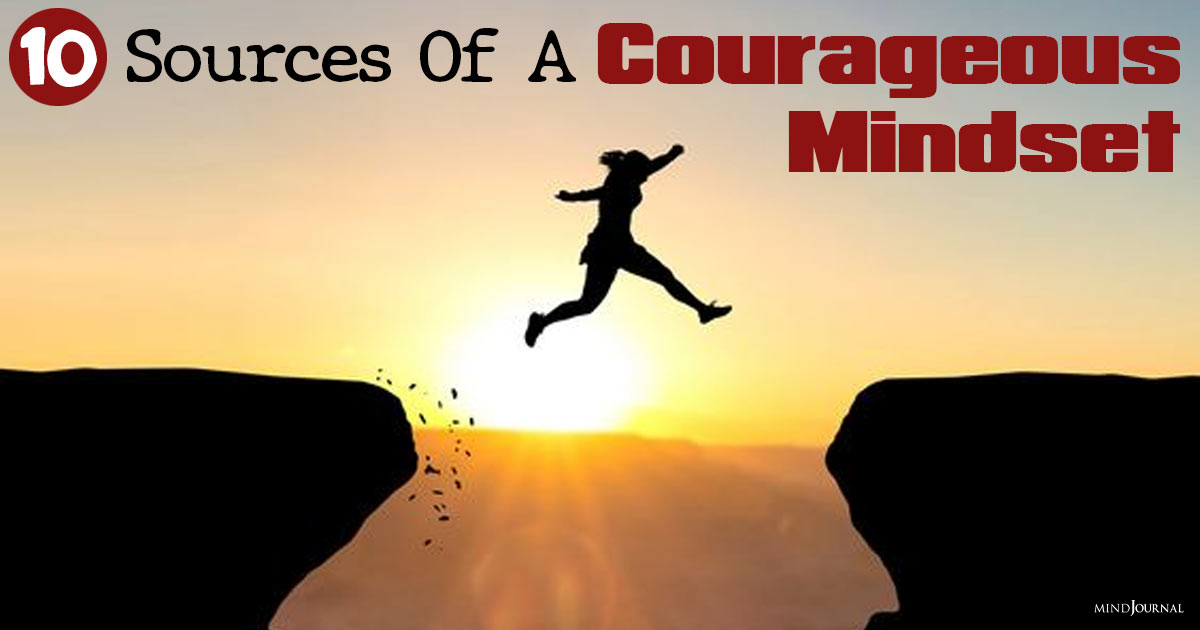Having a courageous mindset is an underrated superpower. Courage and bravery can take us a long way in life. But what are the factors that play an important role in having courage? Let’s find that out, shall we?
KEY POINTS
- Courage is not about being fearless.
- Courage is the capacity to exercise control over one’s life.
- Courage allows one to overcome personal limitations (like fear and anxiety) and pursue a full life.
Courage is something that we want for ourselves and admire in others. One of the worst criticisms in the world is to be called a coward (Kateb, 2004). Courage is an important aspect of positive psychology that allows one to overcome personal limitations (like fear and anxiety) and pursue a full life (Seligman, 2011).
Research indicates that acts of bravery are linked to better resilience and a longer life span (Diener, 2012). Courage is widely identified as a healing component in clinical psychology (Kugel, 2017).
What does it mean to be courageous, and where does it come from? The following factors are crucial in the development and improvement of courage (Rachman, 1990).
Related: How To Be More Courageous In Life: 4 Simple Steps
10 Sources of a Courageous Mindset
1. Pursuing a meaningful goal.
Courageous people are often dedicated to causes they find meaningful and that gives them a sense of purpose. People with a sense of purpose feel less anxiety and stress (Hagerty, 2016).
Self-growth can mean pursuing learning for its own sake, not just for external achievement (e.g., playing music, helping the vulnerable, or spending time in nature).
2. There is no courage without fear.
As Mark Twain said, “Courage is not the lack of fear, it is the acting in spite of it.” Facing fear when the odds are in your favor makes fewer demands on courage than when the odds are against you.
For example, a shy person who manages to give a public speech shows an act of courage.
3. Self-confidence.
Self-confidence means believing that one can meet the demands of a task. A belief that “we can do it” will make a difference when the time comes for courageous action. The confident individual is more likely to persist in the face of obstacles.
The more self-confident you are, the less fear you will experience in navigating a crisis or traumatic event. Self-confidence is acquired by knowledge, practice/experience, and effort.
When low self-confidence causes people to avoid activities, they miss opportunities to grow.
4. Managing your feelings.
The ability to self-regulate under intense challenges is an important skill for courageous individuals. One of the central ideas in emotion regulation is that the way you think largely shapes how you feel.
As the stoic philosopher, Epictetus said, “it is not events that disturb people, it is their judgments concerning them.” Few things cause more distress than fighting against circumstances outside of our control or getting attached to an outcome that isn’t in our power. So, it is important to recognize what we can (and can’t) control.
Knowing that we have done our best given the circumstances leads to the calm acceptance of whatever happens. Courageous people typically also have a greater sense of humor. Humor provides distance and perspective but does so without denying pain or fear.
5. Being authentic.
Authenticity is essential to courage. It means being the person one claims to be. Courageous people are willing to face unpleasant truths about themselves without getting defensive or trying to rationalize them away.
Related: 12 Ways to Build Emotional Resilience and Why
6. Empathy.
Courageous people have the ability to see others’ points of view. It takes great courage to endure our own suffering, but it is suffering that transforms us into more compassionate people. Compassion and empathy help us to keep going when we struggle.
7. Situational demands.
Situational demand (or rising to the occasion) for courage promotes courageous behavior despite fear. Due to our biological survival instincts, when a situation becomes difficult, we tend to work harder to meet the challenge.
For example, a drug addict after hitting rock bottom earns a graduate degree in addiction treatment to help others with drug problems (Hagerty, 2016).
8. The decision-making process.
Acts of bravery rely on instinct rather than an active thought process. Evidence shows that brave individuals often act on their impulses, perhaps skipping conscious decision-making (Jayawickreme 2012).
9. Social connectedness.
Courageous people have a social support system from which to draw strength. They also provide social support to others. The availability of social support reduces anxiety and stress.
After all, it feels easier to face adversity (e.g., loss of a loved one) when you have a close friend that you can rely upon.
Related: 4 Strategies For Dealing With Fear and Live a Courageous Life
10. Courage is a muscle you develop over time.
Perhaps the best way to think of courage is to treat it as a muscle. Some people are born with better muscles than others, but everyone can improve their muscles through practice.
Practicing small acts of courage (things that make you uncomfortable) can expand your comfort zone.
References:
Diener, E. (2012). New Findings and Future Directions for Subjective Well-Being Research. American Psychologist, 67, 590-597.
Hagerty BB (2016), Life Reimagined. Riverhead books.
Kateb, George. (2004) Courage as a Virtue, Social Research, 71(1), pp. 39–72.
Kugel, U., Hausman, C., Black, L., & Bongar, B. (2017). Psychology of physical bravery. Oxford handbooks online: Scholarly research reviews.
Rachman, S. J. (1990). Fear and courage (2nd ed.). New York, NY: Freeman.
Seligman, Martin E. P. (2011). Flourish: A Visionary New Understanding of Happiness and Well-being. New York: Free Press.
Jayawickreme, E., & Di Stefano, P. (2012). How can we study heroism? Integrating persons, situations and communities. Political Psychology, 33, 165–178.
Written By Shahram Heshmat
Originally Appeared On Psychology Today









Leave a Reply